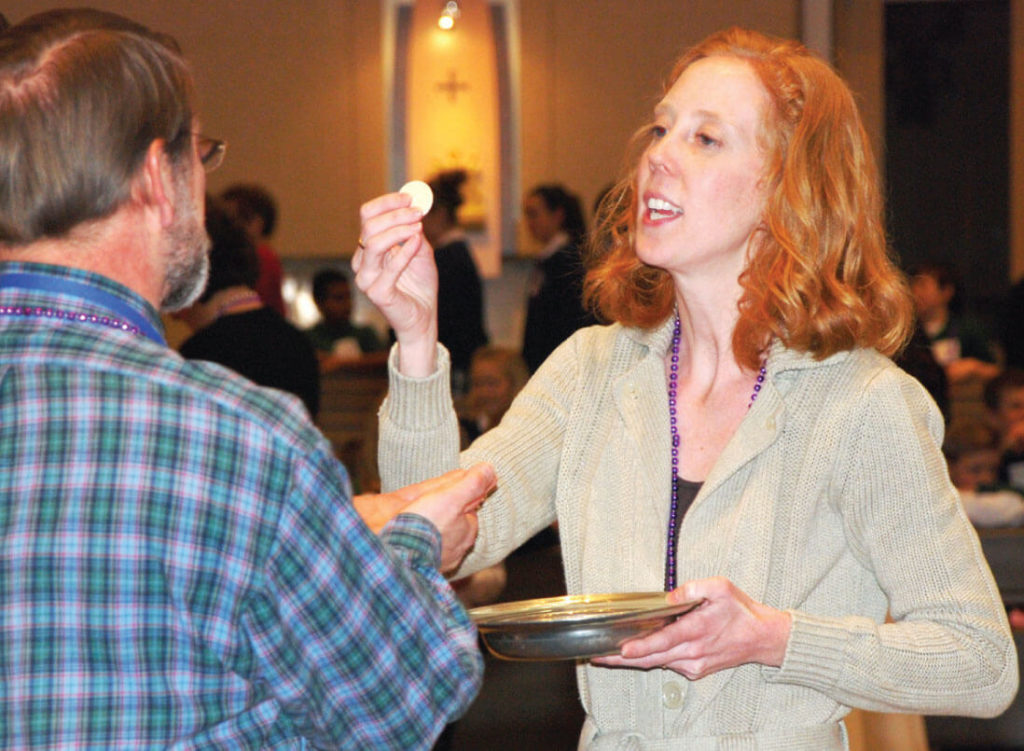
John’s gospel sees Jesus’ miracles, such as his transforming action at the Cana wedding, as signs. These signs point to more than literally or physically happens in the action. The signs Jesus works in John are words and deeds that show God’s Spirit poured out for the life of the world, that show forth God’s glory.
The gospel writer deliberately places the wedding at Cana immediately after Jesus begins calling disciples. In John’s gospel, chapter one, Jesus gathers disciples, inviting them to come and see who he is. “Come and see where I live, stay with me,” Jesus says to Andrew and another disciple (1.39). “Follow me,” Jesus says to Philip (1.43). “Believe, and you will see greater things still,” he says to Nathaniel (1.50).
John’s gospel invites readers to come and see with Jesus’ first disciples the signs that show who Jesus is and to reflect on Jesus’ presence in the Spirit with us. John is not a historian trying to describe historical events in Jesus’ life as they happened, but an evangelist proclaiming Jesus’ words and deeds in such a way that his community will continue to find life in them. To the wedding feast at Cana, Jesus brings the nucleus of a new community.
The marriage feast that most concerns John is not the one in the story but the lasting and intimate relationship of faith between the risen Jesus and his disciples, including his mother. The abundant wine Jesus provides is not just for the wedding guests but for the community that continues to gather in his name.
- How do you respond to John’s vision of the Christian community as a wedding party supplied abundantly with the wine of Jesus’ Spirit?
- What choice wine flows to you through the sacraments?
The gathering of Jesus’ new community at the Cana wedding takes place in John’s gospel immediately before the account of Jesus cleansing the temple. The gospel writer deliberately puts the wedding and the cleansing back to back. For the Christians for whom John writes at the end of the first century, the ancient sources of belief and unity centered in the temple have run dry like the wine at the wedding.
The actual temple lies in ruins after A.D. 70. No longer do festivals such as Passover or Pentecost bring Jews from many regions to Jerusalem. John’s gospel sees the Christian community as the new temple, the new dwelling of the Spirit.
The new community Jesus gathers in John’s gospel is diverse.
• It includes Jesus’ mother.
• It includes followers of John the Baptist, such as Andrew (John 1.39-42).
• It includes Samaritans who come to believe on the word of the woman who meets Jesus at Jacob’s well (John 4).
• Lastly, the new community includes Jewish Christians like the man born blind who experiences conflict with fellow Jews who follow teachers other than Jesus (John 9).
For John, water that becomes wine tells of the transformation of believers in baptism and eucharist. In the water bath and the cup, Christians come to share in the Spirit of Jesus being poured out for the life of the world. These diverse believers are Jesus’ body, the new temple being raised up in Spirit and truth.
In our time many Catholics have experienced their parishes closing. Like the earliest Christians, they have lost their places of worship. For many the experience reveals the bonds that have formed in celebrating births and baptisms, confirmations and marriages, tragic deaths and the full faithful lives of elders. Bonds have formed at fall festivals, justice committees, religious education programs.
Eucharist works. Sharing the body of Christ nourishes holy communion among us and commitment to love one another. These very real bonds of belonging make changing parish communities painful but make us aware we have experienced the Spirit of Jesus sustaining us and knitting us together.
- What in your experience survives in Christian communities that cluster or merge?
- When have you experienced the Spirit poured out in yourself or your Christian community?
Jesus refuses to act at first when his mother notices the wedding guests have no wine. “My hour has not yet come,” he says. In John’s gospel Jesus refers to his passion and death as his hour. The water Jesus turns into wine at the wedding anticipates his lifeblood poured out in his passion. In his death Jesus gives over his spirit and gives birth to the community that gathers in his name.
The passionate self-giving of Jesus becomes the way of life for Christians, the way by which they, in and with Jesus, become the choice wine kept for the now of every age. In such self-giving, Christians become those who embody the words of the mother of Jesus, “Do whatever he tells you.” By doing what Jesus tells us we become those who put abundant wine on the table of Jesus today and in the fullness of the wedding feast to come.
- How and where do I see Jesus’ disciples today pouring out their lifeblood?
- How do you live the words of Jesus’ mother, “Do what he tells you?” How does your community of faith live these words?
